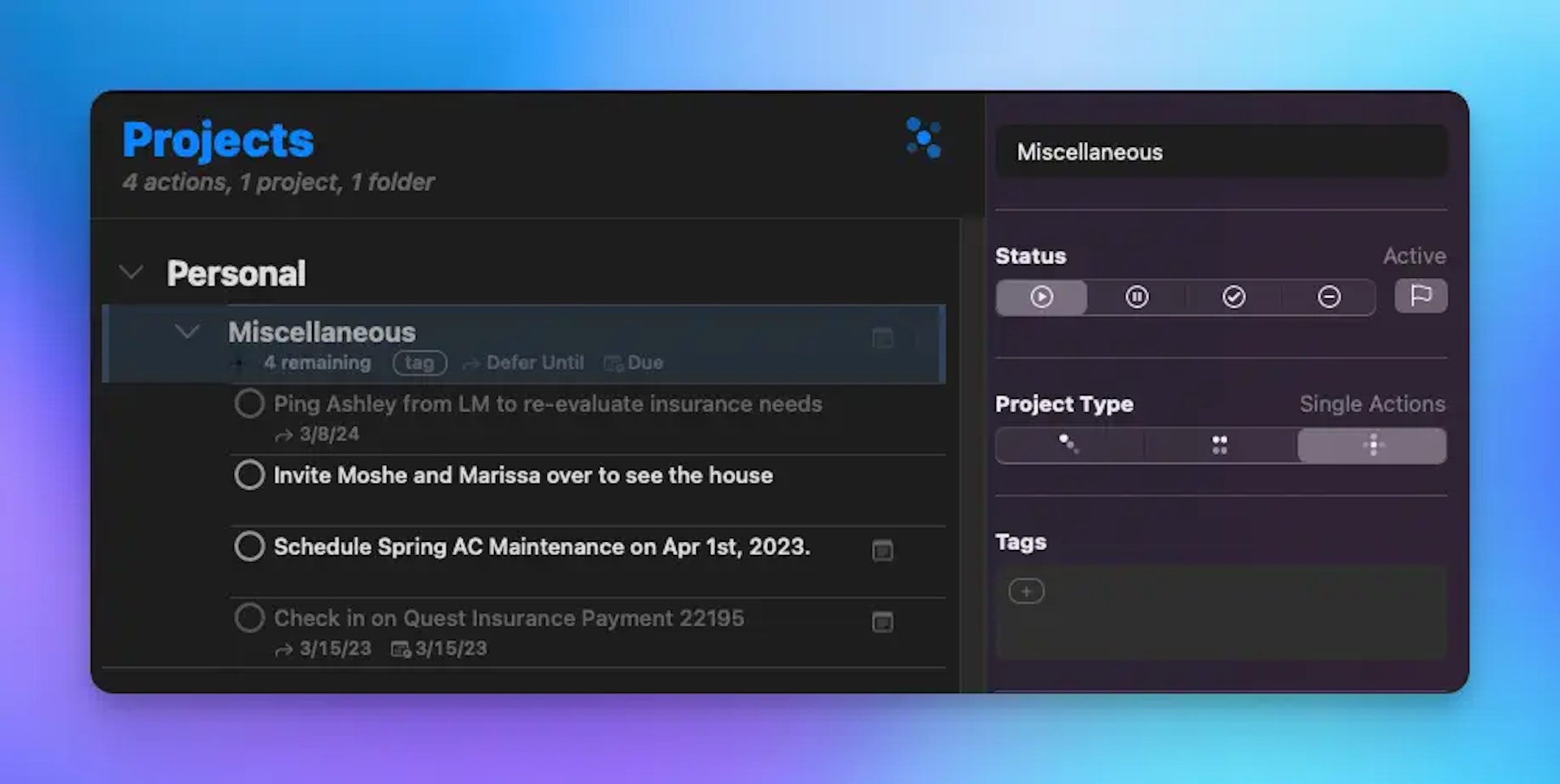Where does a 'Miscellaneous' list fit into OmniFocus and GTD?
When is an action just an action?
Before we talk about the merits and uses of a single-action 'Miscellaneous' list, we should make one thing clear:
When you dig deeper, next actions are usually in service of a higher-level project. It may feel like "Reorganize my note-taking app" is a single task, but is it really? To me, "Reorganize my note-taking app" is the project-level outcome I want to achieve, and the next action would be something more concrete like "Review my garden notes folder for things that aren't easy enough to find".
Assuming we're on the same page on that, let's talk about how to handle things that really aren't associated with a project.
Using a Miscellaneous list in OmniFocus
Let's say we have an action that really doesn't require a project, like "Change my printer ink cartridge". I've already got the cartridge sitting next to the printer; there's nothing to do before or after this task to achieve the outcome.
If I hadn't already ordered the ink cartridge, "Change my printer ink cartridge" would be a project with "Order new ink cartridge" as the next action!
I like to put these kinds of actions into an Active, Single Action list called Miscellaneous. This is what that list looks like for me in my system today - notice that it doesn't have hundreds of projects disguised as single actions, and hasn't turned into the junk drawer that these so easily become:

Let's walk through these one at a time to explain my reasoning for keeping them here:
-
Insurance - When we bought insurance for our home, the agent we used recommended shopping around every couple of years. I don't want a project hanging out in my list to "Shop around for insurance", so I threw a single action into this list and deferred it out two years.
When I see this action on my list, I will likely email our agent and immediately put a "Waiting for" action into a new project called "Shop around for better insurance".
-
Friends - I want to have a few of our friends over to hang out. Could this go into a "Maintain a friendship with Moshe" project? Sure! I personally don't find value in those projects unless a relationship with someone is going off the rails, but it's an equally valid approach.
-
AC Maintenance - Once I schedule the AC maintenance, there's nothing else for me to do. If another project (i.e. "Replace old ductwork") emerges during the maintenance, I'd pull that out into its own project to shop around for quotes, update our budget, schedule the work, etc.
-
Checking on Payments - This could absolutely be in a "Pay bill for X" project. The happy path for this project, though, is that I'll simply verify successful payment on the 15th of March, check off the task, and not think about this again.
If I check in an the payment isn't successful, I'd stand up a "Figure out what's going on with bill for X" project and take it a bit more seriously.
A final word of caution
Please believe me when I say that these Miscellaneous lists are dangerous. It's very tempting to avoid clarifying actions appropriately and stuff them into this junk drawer, where they'll sit for months without any action because you haven't actually figured out the next step to complete it.
When used responsibly, a Miscellaneous project can be a potent tool. If you don't already have one and are feeling some friction from the number of single-step projects you're creating, give it a try! I'd recommend setting an internal goal to keep it under 10 items, though.